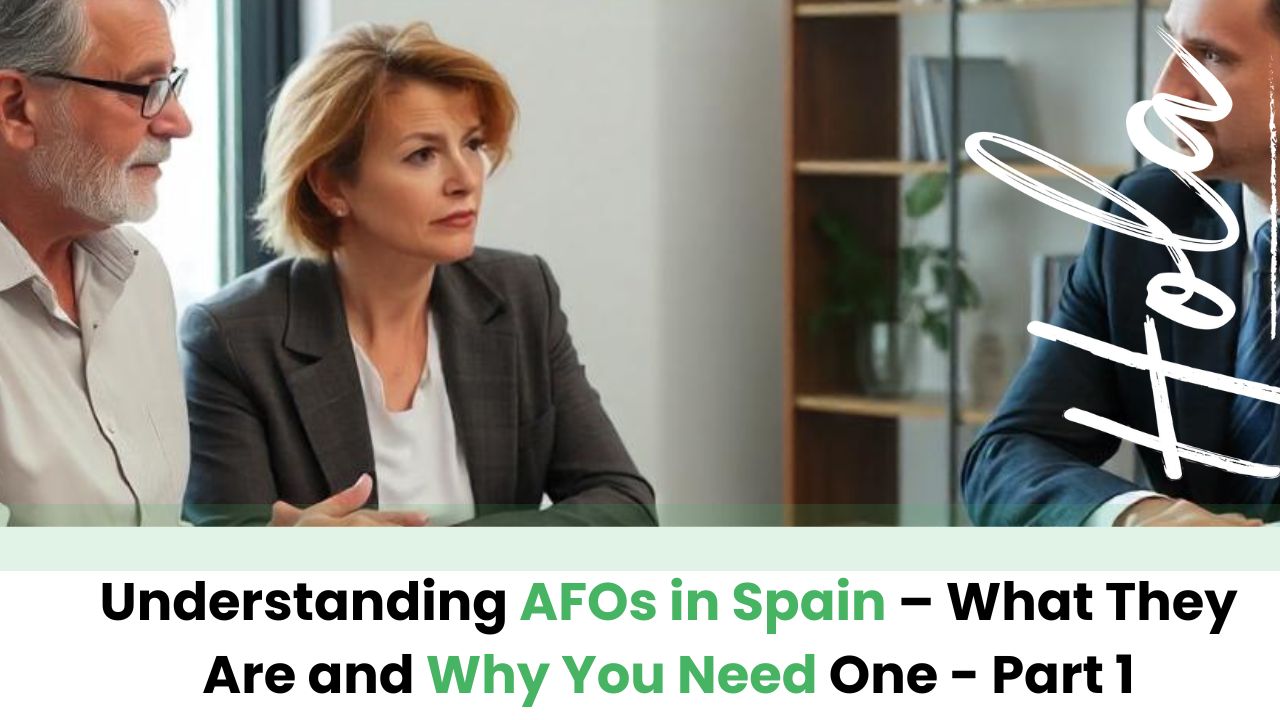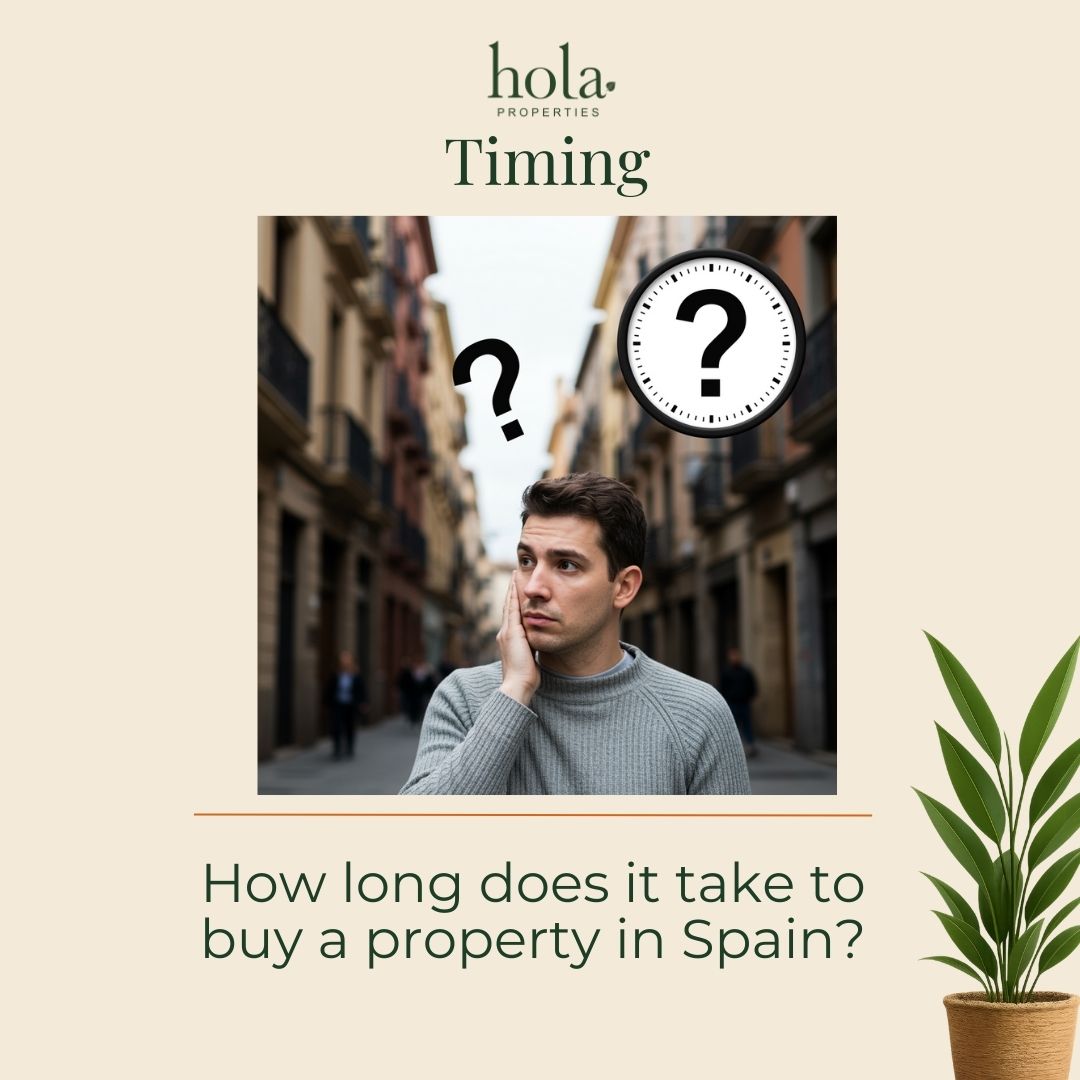When it comes to buying or selling rural property in Spain, understanding the legalities can be overwhelming. One crucial aspect that often confuses property owners and buyers alike is the concept of an AFO, or Asimilado Fuera de Ordenación—a term that has gained significant importance over recent years. This article aims to clarify what an AFO is, how it works, and why it has become such a vital part of the real estate market, particularly for rural properties.
What is an AFO?
An AFO, or Asimilado Fuera de Ordenación, is a legal certificate that regularises properties in Spain that have been built without the proper permits or whose constructions don’t align with planning regulations. It applies primarily to rural properties, which often don’t comply with local building codes, either due to extensions that were made illegally or because they were built without any permits at all.
In short, an AFO brings a level of legalisation to properties that have gone outside planning regulations but aren’t illegal in the eyes of Spanish law. This certificate allows these properties to be registered properly, giving homeowners the chance to sell, renovate, or legally live in them without fear of future legal problems. It’s particularly useful for those looking to sell properties in rural parts of Spain, where non-compliance with local planning regulations is common.
AFOs, DAFOs, and SAFOs: Different Names, Same Meaning
There’s often confusion about the difference between AFO, DAFO, and SAFO. In reality, these terms are interchangeable; they all refer to the same process. Whether it’s an AFO, DAFO, or SAFO, the process you need to follow is identical. The terminology can vary slightly depending on the region in Spain, but ultimately, they all serve the same function: to regularise properties that have been built without full adherence to planning laws.
Why Have AFOs Become So Important?
In recent years, AFOs have become much more prominent, particularly following the introduction of the 2021 Andalusian planning law known as LISTA (Ley de Impulso para la Sostenibilidad del Territorio de Andalucía). This law reshaped the landscape of rural property ownership by making AFOs more accessible to certain types of properties that previously would not have qualified.
Under the new legislation, properties built on protected land, which couldn’t have been regularised before, may now be eligible for an AFO. This has opened up a significant number of properties that were previously in limbo. However, the process to obtain an AFO has become more complicated in other respects, often requiring additional steps involving various governmental bodies.
Before LISTA, some rural properties were essentially left in a grey zone where they could not be sold, mortgaged, or even renovated because they lacked the proper paperwork. Now, the law makes it obligatory for properties to either be built according to regulations or to have an AFO in place to secure the right to legally exist in their current form.
The Importance of an AFO in Selling Property
For anyone thinking of selling a rural property in Spain, the importance of having an AFO cannot be understated. In fact, without an AFO, many prospective buyers will simply walk away. Lawyers, too, have become much stricter in advising their clients to avoid properties without an AFO. As Amy from Hola Properties puts it, “We’re seeing cases almost weekly of rural properties where lawyers are advising their clients not to proceed with a purchase due to a lack of proper legal paperwork.” Without this certificate, you may find it nearly impossible to sell your property, and even if you do, it could be at a significantly reduced price.
Beyond selling, the absence of an AFO can limit what you can do with your property. Without it, you won’t be able to obtain building permits, meaning you can’t legally renovate or extend your property. Something as simple as replacing old windows for better insulation or fixing a leaky roof could be impossible without the proper permits, which you can’t obtain without the AFO in place.
How to Know if You Need an AFO
If you own a rural property in Spain and are unsure whether you need an AFO, the best course of action is to consult with an expert. Firms like Hola Properties, who deal extensively with AFOs and rural properties, are well-versed in the legal process and can help determine whether your property requires regularisation. The need for an AFO generally applies to properties that are more than six years old and were built without the appropriate permits or have had illegal extensions added.
As Amy from Hola Properties explains, “If your property is over six years old on satellite images, then you can apply for this certificate and it will regularise your building, allowing you to put it into the deeds of your property.” However, it’s essential to proceed with caution. While there are other methods, such as the existing building certificate, they often leave property owners open to future legal complications. Therefore, ensuring you have the correct paperwork through an AFO is the safest route.
The AFO Process and Timeline
The process of obtaining an AFO can be lengthy and complicated. The time it takes will depend largely on the town hall you’re dealing with. In some cases, it can take a minimum of 12 months, though in busier areas, the process can stretch to 18 months or even two years.
Another important factor is that you may need to make physical changes to your property to comply with current building regulations. For example, many properties will need updated septic tanks or alterations to ceiling heights before they can qualify for an AFO. It’s important to budget for both the time and cost involved in obtaining the certificate and any necessary building work.
AFO and the Future of Rural Property Ownership
The rise in importance of AFOs isn’t just a trend; it’s a reflection of the Spanish government’s push to bring rural properties into compliance with modern planning laws. If you own a rural property or are thinking of buying one, understanding the AFO process is crucial. Without it, your property may remain unsellable or subject to restrictions that limit your ability to enjoy or improve it.
For buyers, too, understanding whether a property has an AFO—or whether it will need one—is essential before making a purchase. As more and more lawyers advise their clients to avoid properties without an AFO, the certificate has become a crucial part of the due diligence process.
Conclusion: The Value of Getting Professional Advice
Navigating the complexities of AFOs can be daunting. Whether you’re buying or selling, it’s essential to have the right legal and professional guidance to ensure that your property complies with all relevant legislation. At Hola Properties, specialists are on hand to assist you through the process, ensuring you have all the information and help you need.
If you’re unsure whether your property requires an AFO or need assistance with the application process, it’s always best to seek professional advice. Ignoring the issue could have long-term consequences, affecting not only the value of your property but also your ability to sell or renovate in the future.
In an ever-changing legal landscape, staying informed and ensuring your property is fully compliant is more important than ever




